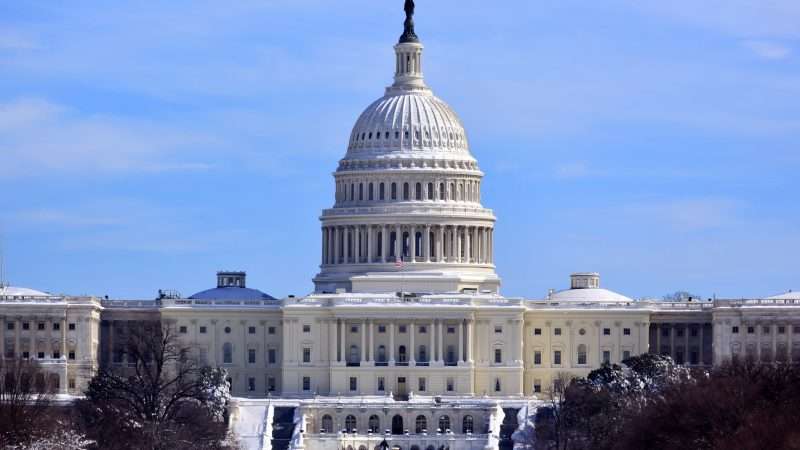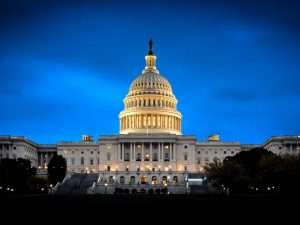When the Centers for Disease Control and Prevention (CDC) revised its guidelines for Americans recovering from COVID-19 last week, reducing the recommended isolation period from 10 days to five, many critics complained that the agency said nothing about using rapid antigen tests to verify that infected people are no longer contagious. Yesterday the CDC addressed that concern, sort of, by adding this advice:
If an individual has access to a test and wants to test, the best approach is to use an antigen test towards the end of the 5-day isolation period. Collect the test sample only if you are fever-free for 24 hours without the use of fever-reducing medication and your other symptoms have improved (loss of taste and smell may persist for weeks or months after recovery and need not delay the end of isolation). If your test result is positive, you should continue to isolate until day 10. If your test result is negative, you can end isolation, but continue to wear a well-fitting mask around others at home and in public until day 10.
Notably, the CDC is still not actually recommending that people leaving isolation use antigen tests before returning to work or otherwise resuming normal activities. Its advice is limited to what people should do if they can obtain a test kit and are already inclined to use it. That stance is puzzling, since a negative test result provides additional assurance that you won’t infect others, while a positive result, as the CDC acknowledges, indicates that continued isolation is prudent.
Since the CDC suggests that people may not have “access to a test” even if they want to take one, one obvious explanation for its otherwise confusing advice is that, two years into the pandemic, home tests remain more expensive and harder to obtain in the United States than they are in other countries, thanks mainly to the Food and Drug Administration’s reckless foot-dragging. But CDC Director Rochelle Walensky also has cast doubt on the reliability of antigen tests.
“We opted not to have the rapid test for isolation because we actually don’t know how our rapid tests perform and how well they predict whether you’re transmissible during the end of disease,” Walensky told CNN last week. “The FDA has not authorized them for that use.” In an NBC interview, she even said the information provided by an antigen test “will not be useful.”
That position contradicts what the CDC is now saying. According to its latest advice, a positive antigen test does provide useful information, justifying continued isolation. A negative result likewise provides useful information for those who choose to take the test, since, according to the CDC, it means “you can end isolation.”
As New York Times columnist Zeynep Tufekci notes, Walensky’s dismissal of antigen tests also contradicts the views she expressed before she became head of the CDC. In September 2020, when Walensky was a Harvard Medical School professor and chief of Massachusetts General Hospital’s infectious disease division, she co-authored a Health Affairs article that compared the pros and cons of antigen tests, which detect molecules on the surface of the coronavirus and deliver fast results at home, and polymerase chain reaction (PCR) tests, which detect genetic material from the virus after amplifying it and require a medical visit and laboratory processing.
“It turns out that the PCR-based nasal swab your caregiver uses in the hospital does a great job determining if you are infected,” Walensky and David Paltiel, a professor at the Yale School of Public Health, wrote, “but it does a rotten job of zooming in on whether you are infectious. By contrast, the rapid saliva-based antigen test with the 30 percent false negative rate does a poor job of diagnosing infection, but it is likely the better tool for judging infectiousness.”
Judging infectiousness, of course, is exactly the issue when someone recovering from COVID-19 is deciding when they can safely mingle with others. In this context, Tufekci suggests, “rapid tests are a good way to see who is infectious and who can return to public life,” and “their lack of sensitivity to minute amounts of virus is actually a good thing,” since it means that “false negatives” are likely to involve people with very low viral loads.
Tufekci sees a parallel between the CDC’s current attitude toward antigen tests and its early resistance to masking as a safeguard against virus transmission. While public health officials initially said there was not enough evidence to support general use of face masks, it became clear that their real concern was the shortage of high-quality masks, which they thought should be reserved for health care workers. In this case, the U.S. is facing a government-engineered shortage of rapid antigen tests. Instead of forthrightly noting that reality, the CDC is rationalizing its testing advice by arguing that the tests are not really all that useful, even as it implicitly acknowledges that they are.
Walensky’s handling of this issue is of a piece with the CDC’s prior misrepresentations of COVID-19 science, which often seem motivated by a desire to defend whatever position the agency is taking at the moment. While Walensky herself has proven to be an unreliable source of information about COVID-19 on several occasions, the problem predates her tenure.
The agency quickly went from dismissing the value of face masks to describing them as “the most important, powerful public health tool we have.” Walensky’s predecessor, Robert Redfield, went so far as to argue that masks were more effective than vaccines would be. Even after vaccines proved to be remarkably effective, especially at preventing severe disease and death, Walensky suggested something similar, exaggerating the evidence in favor of masks in a way that implicitly denigrated the value of vaccination. And to this day, the CDC’s advice about face coverings emphasizes the importance of a good fit without talking about the substantial differences in the effectiveness of different mask types.
None of this inspires confidence in an agency that Americans should be able to trust during a pandemic. The skepticism engendered by the CDC’s history of misleading statements and weakly justified reversals surely did not help when the agency decided to cut the recommended isolation period in half, even though that was a sensible step.
The CDC said the change was “motivated by science demonstrating that the majority of SARS-CoV-2 transmission occurs early in the course of illness, generally in the 1-2 days prior to onset of symptoms and the 2-3 days after.” That gloss concedes that some transmission occurs after more than five days, but that point is not necessarily decisive, because other factors need to be considered in formulating advice for the general public.
Walensky and Anthony Fauci, President Joe Biden’s top COVID-19 adviser, noted that a 10-day isolation period has very disruptive effects on the economy, including the health care sector, which is especially relevant during the current omicron surge. “On balance,” Fauci said, “if you look at the safety of the public and the need to have society not disrupted, this was a good choice.”
Walesnky and Fauci also noted that 10 days of isolation was more than most people were able or willing to put up with. “It really had a lot to do with what we thought people would be able to tolerate,” Walensky said. “We really want to make sure that we have guidance, in this moment when we knew we were going to have a lot of disease, that could be adhered to.”
That consideration is also relevant. Erring on the side of caution does not make sense if it means your advice will be widely ignored. Guidelines that tolerate some risk of transmission can be more effective than guidelines that aim for zero risk if people are more likely to actually follow them. As Fauci observed, “you don’t want the perfect to be the enemy of the good.”
On this score, much of the criticism provoked by the CDC’s new guidelines was misplaced. “By incorporating societal responses and employer requirements into their arguments,” MSNBC columnist Hayes Brown complained, “Walensky and Fauci implied that the CDC’s decision wasn’t based purely in science.” But the CDC’s advice has never been “based purely in science.” Nor should it be.
Recommendations about how to deal with the threat posed by a contagious disease inevitably incorporate value judgments and cost-benefit analysis. There is nothing inherently wrong with that, as long as the CDC is honest about the science, candid about the factors it considers, and willing to recognize that people might reasonably reach different conclusions, depending on their risk tolerance, personal preferences, and evaluation of the evidence.
Unfortunately, the CDC frequently has fallen short on one or more of those criteria, and its testing advice is a good example of that failure. As Walensky once emphasized and the CDC even now implicitly concedes, antigen tests are a useful, if imperfect, tool for reducing transmission risk while allowing people to resume normal life. Recommending their use toward the end of isolation—instead of simply granting that some people might “want” to use them, apparently for idiosyncratic, unscientific reasons—seems commonsensical. It might even help restore the credibility that the CDC has lost by refusing to level with the public.
The post Rochelle Walensky Said an Antigen Test Is a Good Tool for 'Judging Infectiousness.' Now She Says 'Its Information Will Not Be Useful.' appeared first on Reason.com.
from Latest – Reason.com https://ift.tt/3GeBpRb
via IFTTT





